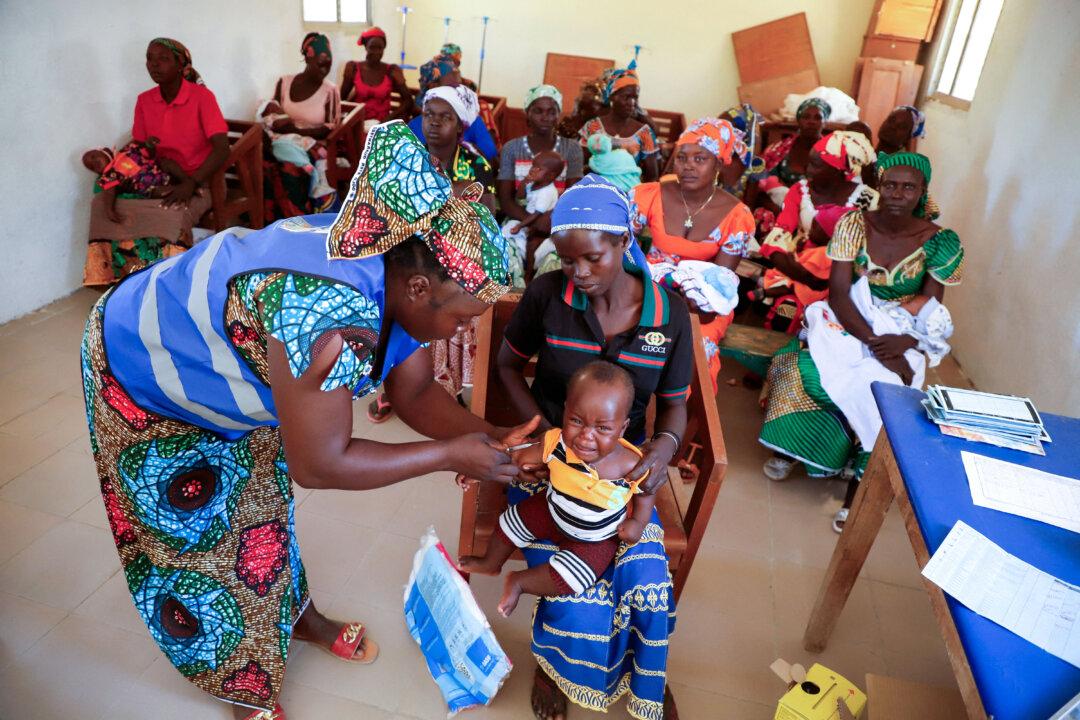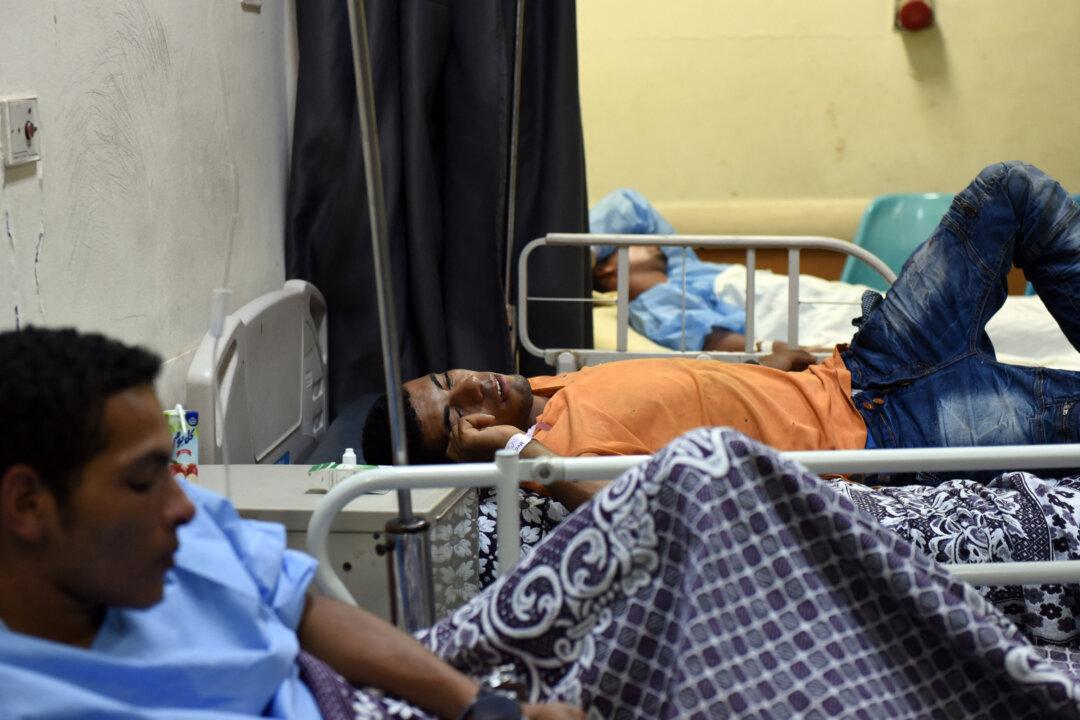YAOUNDE, Cameroon—Honorine Asogue, 34, said she got a welcome surprise when she went to the Soa District Hospital on the outskirts of Cameroon’s capital, Yaounde, on Jan. 13.
Her early morning visit to the health facility was to get a Vitamin A-supplemented vaccine for her 6-month-old daughter, Miracle Chefor, but she was also informed that Miracle had just reached the eligible age for the world’s first malaria vaccine.





